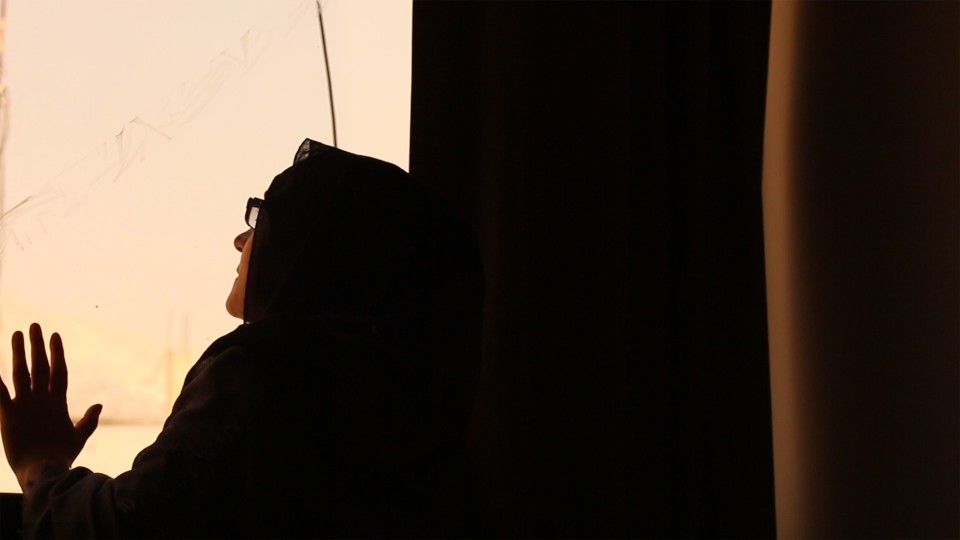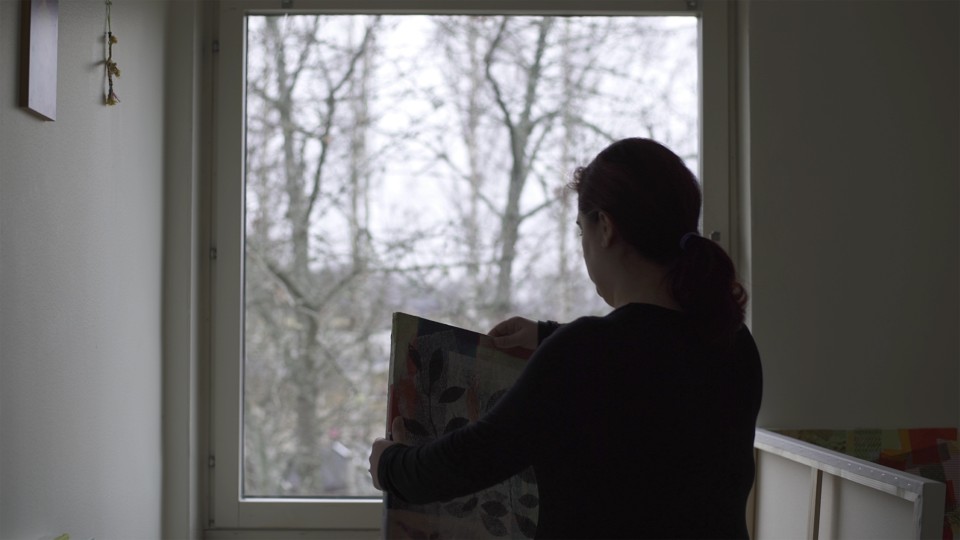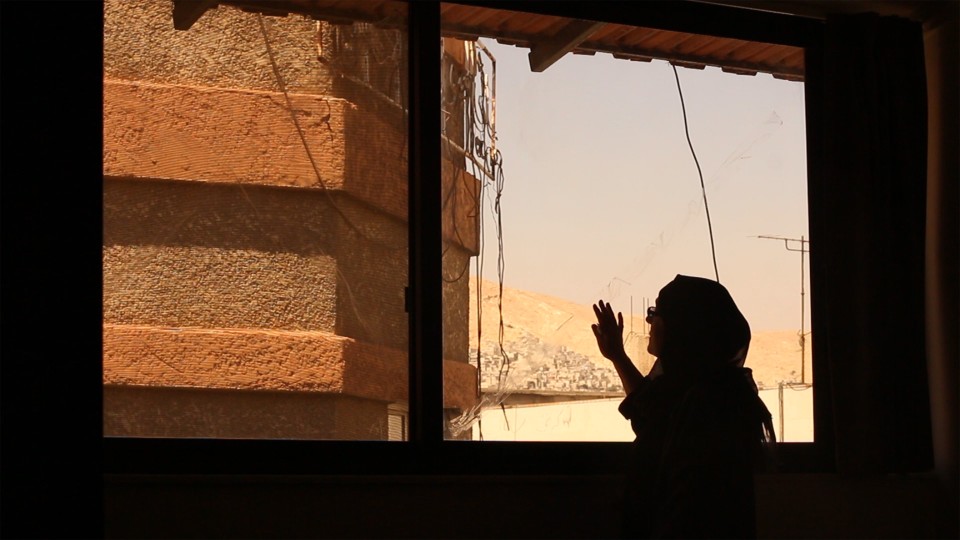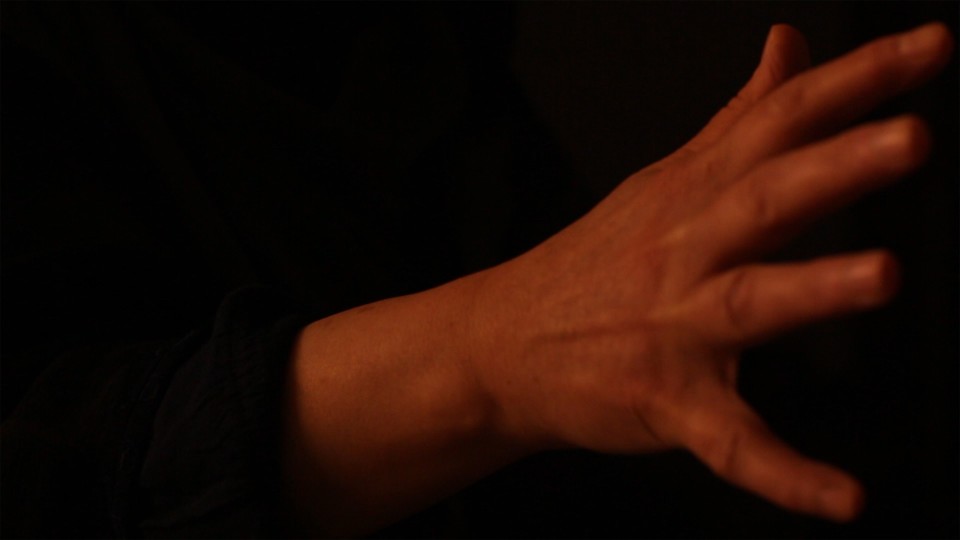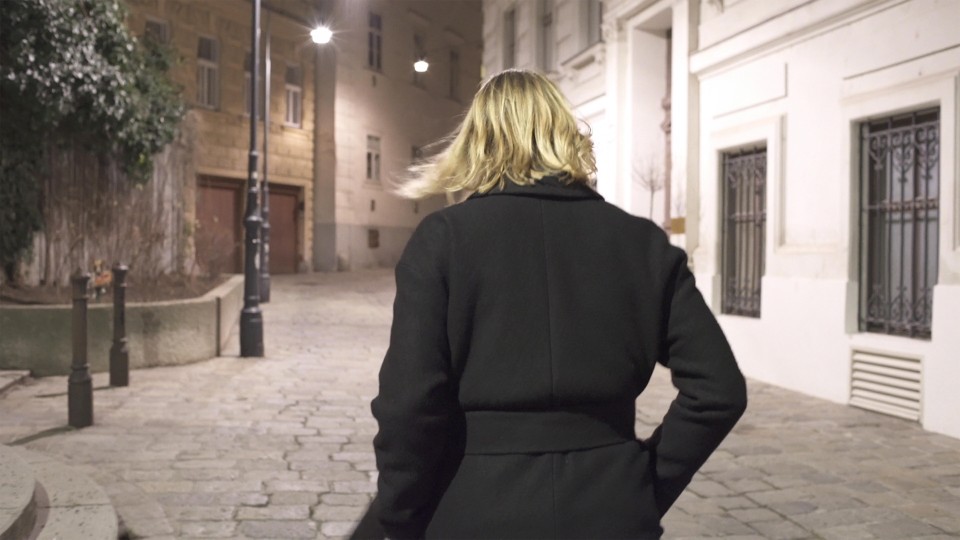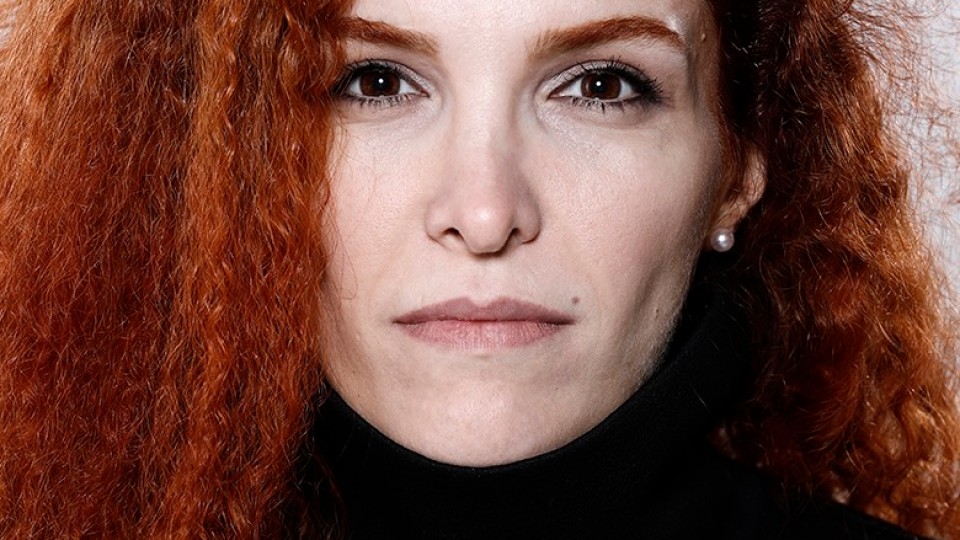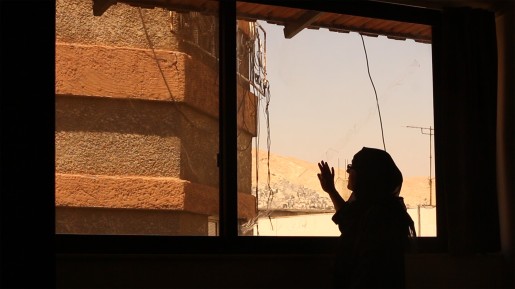Three Syrian women: one in Damascus, one in Sweden and one in Vienna. Each of them, in her own way, lives out her isolation
from memories, from life, from herself. In her second full-length film Chaos Syrian filmmaker Sara Fattahi, who lives in Vienna, delves deep into the inner devastation which the war has inflicted upon
her protagonists.
CHAOS is described as a film about three women living in different times and places. Can you give us some idea about the three
characters who carry this film? And maybe also about the fourth one who is a guiding spirit?
SARA FATTAHI: In 2015 I made a first feature documentary called Coma about three women from three generations living under one roof in Damascus during the war. CHAOS, the second part of a trilogy
I’m working on, is about three women living in three cities; they are separated by different backgrounds, but they share
the same traumas and the same fears. The guiding spirit of CHAOS is the ghost of Ingeborg Bachmann. We can hear her voice
in a radio interview recorded in 1971 when she speaks about her novel Malina and also about the fire and how her hand got burnt. In a way, what she says in the interview summarizes the story of the
three women. My film is about three Syrian women; since I am the third one and couldn’t interview myself, I needed a
voice, a bridge between me and the story, between me and Vienna, between me and the whole concept of different places and
common fears. One woman is living in Damascus, the second one in a village in northern Sweden, and I am the third woman in
Vienna, all of us connected somehow to the spirit of Ingeborg Bachmann.
Recently you showed a short film entitled 898 + 7 within a program called Exiled Gaze. It seems to me that CHAOS is an essay about the concept of exile in its most radical sense. It is about exile not as a geographical,
cultural or linguistic notion; your film is about exile from memory, exile from oneself, exile from life.
SARA FATTAHI: For this short film I had to do something very personal; 898 + 7 is about the perception of exile from my perspective. I am not able to say that I’m living “in exile”, since
I haven’t found my definition of exile yet; I’m questioning things around me, questioning my feelings, the environment,
the people, the language. Maybe this will take many years, and only then will I be able to call my status “exile”.
For the time being I still have deep inside me the hope that I will go somewhere else, or some day return to my country. I
do not consider my current life as a life in exile. But maybe “exile” starts with the detachment and separation
with your loved ones. I describe my life between two cities as like gazing through a window. You’re isolated from the
outside life and at the same time somehow part of it. I’m playing with the contradiction between being physically here
and having left a huge part of myself there.
Can you describe your encounter with the oeuvre of Ingeborg Bachmann?
SARA FATTAHI: One thing people here in Vienna find hard to believe is that the complete works of Ingeborg Bachmann are translated into
Arabic. I came across her a long time ago through the correspondence between her and Paul Celan. Four years ago I started
research for a project about poets who had committed suicide. I know there are theories that Ingeborg Bachmann died by accident.
She wrote about herself dying in a fire in numerous poems, as if she predicted it. I found ten poets and then decided to focus
on three of them. One was Ingeborg Bachmann, which was an interesting coincidence considering that I had arrived in Austria.
As an author who wrote so much about Vienna she represented the perfect bridge for me. I needed her voice to proceed with
my concept of being part of my own film. It made a lot of sense to me to use the writings of Bachmann, who had those memories
of Vienna during the Second World War, to get a better idea of this city and to understand why I feel this way here.
There are some Ingeborg Bachmann quotes in CHAOS; one of them reads: “I don’t want to write about war. It’s
too simple for me. Everybody can write about war. War is always terrible. But to write something about peace, about what we
call peace – because, in fact, that’s the war. The real war is just the explosion of this war which is peace.”
Is this the key point about your film?
SARA FATTAHI: As much as it has to do with your inner war, yes. It has nothing to do with life in a war zone. Bachmann’s quote is
very strongly related to the women in my film. The woman who now lives in Sweden is very outspoken and precise in articulating
emotions. Bachmann’s quote puts the experience and feelings of all three of us in a very precise context. I completely
excluded images that feature war as an event. We do have enough information on what is going on in Syria. But nobody will
tell you how individuals, women in particular, are experiencing the war. I was interested in a documentary film about feelings
and not about events.
That leads to a second quote from Ingeborg Bachmann in your film: “And if it could be called an autobiography at all,
then definitely not in a conventional sense, since there is no story told. In a manner of speaking, it’s an intellectual
process that is taking place.” Is CHAOS trying to translate a mental process, an unspeakable pain, into images?
SARA FATTAHI: I was definitely interested in describing the inner world of each woman. That’s why I developed a concept that includes
different sensual layers – the sound of the wind, the weather… Describing their environment helps to comprehend
each woman’s isolation. It’s not about one young man who died in the war; it’s about the unspeakable mental
process of mourning and pain.
How was it that these two women became part of your project and agreed to be in front of the camera despite this isolation
they are living in?
SARA FATTAHI: I started to write this film in 2014 during the post-production of Coma. On a short visit to my family in Damascus I got to know my mother’s best friend, who had lost her son and is now one
of the protagonists in CHAOS. When I went to visit her later I discovered that she was in a totally different stage: she had
shut herself away in complete silence, completely indifferent to what is going on outside. If she speaks, she only talks about
what happened to her son. It’s a clear sign of a traumatic experience. She is a woman who chose silence, who decided
to become mute and who transmits a deep sadness in her black gown. This accords precisely with my concept, and that’s
why I asked her to participate. I felt her desire to be connected to somebody and to share her anger.
The second character is a friend of mine who moved to Sweden five years ago. I told her about my film project, and we found
out how much we shared feelings and experiences. I travelled to Sweden with my camera and stayed for ten days. She translated
her situation emotionally and visually for me, and I realized that I might have lost access to Damascus, but I still had the
connection to these women – a mother and a friend – who are metaphors for Damascus.
One of the women has isolated herself completely from the rest of the world, while the other talks about the fact that she
feels absent. How did you find images to visually express this desire to be invisible?
SARA FATTAHI: I’m not sure whether I’m able to explain my work. When I’m working I follow my heart and my intuition. When
I shot footage in Damascus, I realized that I needed a certain distance to protect myself and to see clearly why I was doing
it. I didn’t want to become traumatized by what had happened to her son, but at some point I became aware that I wasn’t
succeeding in maintaining that distance. The camera is not simply an object; it’s part of your body, something you use
to get closer to your character. I had a clear concept regarding the distance or the closeness of a take, regarding the fact
that I’d rather film the hand than the face. When she spoke, she hardly opened her mouth, but you could perceive her
expression through her hands. My friend in Sweden is a painter, which is why I have a focus on her eyes and her hands to connect
to the first protagonist. As for myself, I wasn’t able to take close-ups of myself, and I also realized how much I felt
the urge to protect myself. That’s why I decided to have an actress as a sort of a doppelganger. A double that I’m
also trying to hide. You can hardly see her, as she is also a spirit of somebody. She doesn’t really exist, and in this
way it reflects my state of mind. The images I shot in Vienna are about living in a city but hearing a different one. I am
trying to find a connection between the eye, the voice and the sound. Each movement leads to another part, to another character.
You also use a lot of interiors – hallways, empty rooms, furnished rooms, staircases.
SARA FATTAHI: CHAOS is part of a trilogy with strong connections to the first film. In Coma I shot one hour and ten minutes in one single space; there’s no way out of it, as if it were a prison. My characters
in CHAOS are also imprisoned, even if Bachmann’s character is moving around; she is still moving as if she were in a
bubble. That’s why I decided to shoot in the underground, which is the most suffocating place in Vienna for me. It prompts
in me a fear of going down; we don’t have this in Damascus. For me, living in a foreign country is visually very closely
connected to images of a tunnel, the underground life and the craziness you sense as you see people moving fast to get to
their destinations. In Coma the only space that opens up in the end of the film is the old cemetery in Damascus. In CHAOS my friend takes me to the forest
at the end of filming. Interestingly, the forest is a space that is open and not open at the same time, since – as my
friend put it – you can easily get lost in a forest.
Were the talks with your protagonists a sort of therapy for you?
SARA FATTAHI: I wish making a film could heal. I tried to understand my feelings and to find out how other people were experiencing and
describing what they were going through. But films are, after all, just films. Since I have many questions and no answers
I try to use the answers of these women to understand my own feelings.
How did you deal with the question of how to depict yourself?
SARA FATTAHI: That was easy and difficult at the same time. There is a strong division between the indoor and outdoor scenes. This corresponds
to the difference between the familiar and the unfamiliar. In the indoor scenes I often re-shot images that I used in my first
film. In the outdoor scenes I used the concept of the doppelganger to convey the idea of being an outsider in a foreign environment.
You told us before that CHAOS is the second part of a trilogy that started with Coma. Are you already working on the third part?
SARA FATTAHI: I have started developing the script of the third part together with a Syrian writer. It will be about one woman with three
different stories, three types of journey into the three parts of her character. It has to be fictional, since it is about
a woman who decides to go back to her country, and each time she tries to do so, something stops her. The only way to return
to my country is in my imagination, which is why I decided the third part of the trilogy will be fictional.
Interview: Karin Schiefer
July 2018

